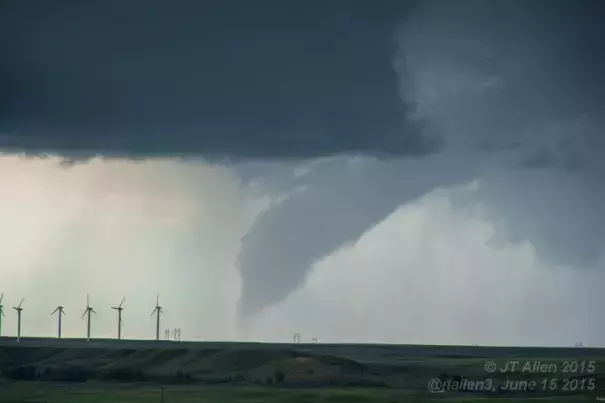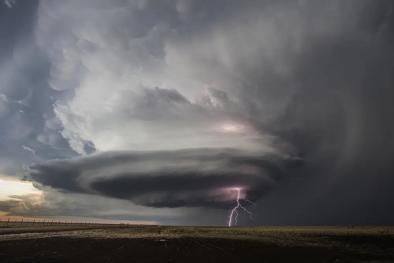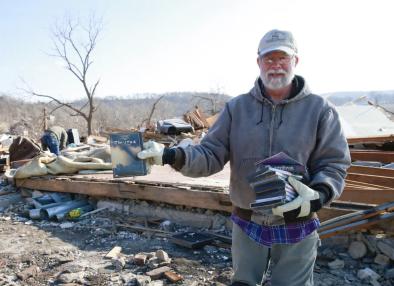Extreme tornado outbreaks have become more common, says study

Most death and destruction inflicted by tornadoes in North America occurs during outbreaks--large-scale weather events that can last one to three days and span huge regions. The largest ever recorded happened in 2011. It spawned 363 tornadoes across the United States and Canada, killing more than 350 people and causing $11 billion in damage.
Now, a new study shows that the average number of tornadoes in these outbreaks has risen since 1954, and that the chance of extreme outbreaks --tornado factories like the one in 2011--has also increased.
The study's authors said they do not know what is driving the changes. "The science is still open," said lead author Michael Tippett, a climate and weather researcher at Columbia University's School of Applied Science and Engineering and Columbia's Data Science Institute. "It could be global warming, but our usual tools, the observational record and computer models, are not up to the task of answering this question yet." Tippett points out that many scientists expect the frequency of atmospheric conditions favorable to tornadoes to increase in a warmer climate--but even today, the right conditions don't guarantee a tornado will occur. In any case, he said, "When it comes to tornadoes, almost everything terrible that happens, happens in outbreaks. If outbreaks contain more tornadoes on average, then the likelihood they'll cause damage somewhere increases."
Related Content






